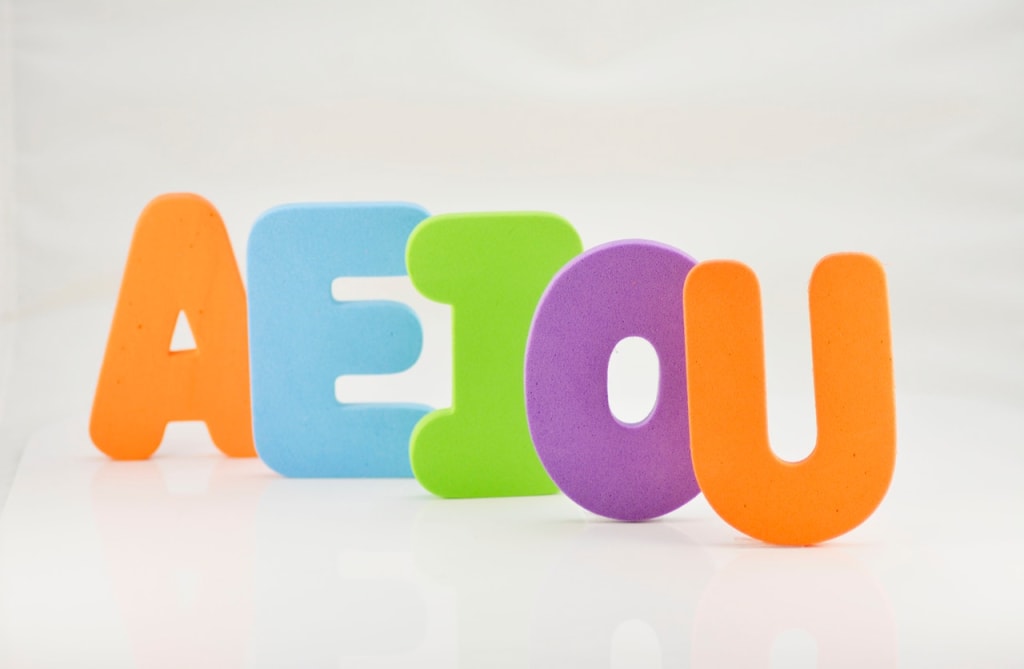
Two of the more interesting classes I had in college were "Linguistics" and "History of the English Language." In Linguistics I learned that a glottal stop is that weird choking noise some people make instead of a "t" sound when they say, "button." When they say it, it usually comes out "BUH-in" with a little catch in the middle, no "t." In History of the English Language, I learned why my friend Jim from California and even our own professor, who was from Pennsylvania, could not tell the difference between the names Don and Dawn. The reason was the Great Vowel Shift. History can tell you approximately when it happened, but there are no definitive reasons why.
War, Famine, Pestilence, Death
In my previous article on accents, "Why Americans Have Accents and How it Can Affect Your Life," I pointed out how migration to the US from different countries, or different parts of England led to people pronouncing things differently in the Northern and Southern US. As it turns out, migration within England itself from 1400-1700 played a role in how things were pronounced there first.
One thing that may have had people moving is the Black Death, also known as the Black Plague, now known as the Bubonic Plague or Anthrax. There was little to be done about that or any severe illnesses or plagues, and the effect on the population of England, Europe, and the World was enormous. Children were orphaned, women were widowed, entire towns were decimated, forcing people to relocate to survive. This meant travelling from more remote parts of England to London to find other relatives or find work, and once the American Colonies were founded, it may have meant traveling there as well. England actually has multiple dialects, varying by region and by class, and The Black Death forced people who had been in some regions for centuries to get up and move.
Britain vs. France
Another theory, actually two theories, is the effect of French on English. As you may recall from History class, France and England had been rivals for centuries, alternating between periods of war and peace, even admiration. Unlike France, which has a formal body regulating what words are to be incorporated into the language (it's not so alien a concept, other countries such as Italy do as well), England did not, and English often readily borrows from other languages. That's why we have words like "pasta," taken from Italian, or from French, words like "debut" or common names such as "Renee" and "Michelle."
Some in England readily used the newer words and slightly altered their pronunciation of vowels based on what they heard in France, and from those around them, while others rejected the French influence and were steadfast in their use of language and how they pronounced it.
After the discovery of America, the imperial nations of France, England and Spain all sought to colonize the western hemisphere. Not just the North American colonies, but also Central and South America. Sometimes a colony would change hands, such as New York switching from Dutch to British control (and a name change from New Amsterdam to New York), which resulted in interesting blends of language. Louisiana as a whole and New Orleans in particular has a unique blend of English, French, and African influence due to its history of French settlement, eventual American control after the Louisiana Purchase, and influx of African slaves through Louisianan ports.
The legacy today
My friend Jon, who lives in Dallas, says it's not redundant to say "ink pen," even though most people would be hard-pressed to think of any kind of pen that doesn't use ink. According to Jon, Southerners have to say "ink pen" because "pen" and "pin" sound exactly the same, and it's only crazy Yankees who think they're pronounced differently. As Jon says, "If you just say pen, I could hand you a straight pin and jab you with it, when you wanted something to write with. That's why you have to say ink pen."
Shifting of the short e sound to the short i sound carries over into other words in the Southern dialect, so "penny" becomes "pinny" and "Kenny" becomes "kinny." At the same time, if you say someone is overly thin, it may sound like "skeeny" rather than "skinny."
Similar to my other friend actually not being able to hear the difference between "Don" and "Dawn" (the first one, the o is pronounced like "ah", the second sounds like "fawn" or "awning"), I've heard people tell me that not only do "feel" and "fill" sound alike, they mean the same thing. Arguably depending on your region, the words could sound similar, but the meaning is NOT the same. A bowl of oatmeal may fill me up, but if it feels me up that would be strange and very possibly unpleasant.
That "i" for "ea or ee" vowel exchange continues through words like "deal/dill," "meal/mill," "peel/pill" and "wheel/will." Usually you can figure out in context what the person is talking about, but not always, and if multiple words with similar shifts are being used, you can get very lost.
In Boston and other parts of New England, due to the dropping of r sounds, there may be little difference between the pronunciation of the words "pot" and "part." Similarly "hot" and "heart" sound very similar."
Ja it's Germans
One exception to the English/French influence is the German and Scandinavian influence in the Upper Midwest. Wisconsin in general, but Milwaukee in particular, had an abnormally high concentration of German immigrants. In fact, it was common for German to be spoken in the home until World War II, when German families in America made a point of only speaking English so they would not be suspected of being German spies or sympathizers. Because of this influence, to this day people in the area will pronounce "yeah" more like "yah," similar to the German "ja," and will also pronounce "bag" like "vague" rather than "sag."
Respecting "ain't"
When I was a kid, some kids I knew in school would say, "'Ain't' ain't a word 'cause it ain't in the dictionary, so I ain't gonna say it no more." But later, I found some dictionaries did include the word, noting it was slang, improper English. Still I wondered where it came from. Then I married a Southerner, and as I heard my in-laws talk more, things fell together.
"Ain't" isn't an individual oddity. It's another leftover of the Great Vowel Shift. This became apparent when I heard my in-laws pronounce, "can't" as "cain't." The full list of the common negative words would essentially be:
Can't cain't
doesn't dudn't
wasn't wudn't or wadn't
wouldn't wuhdn't or woon't
hasn't hain't
aren't ain't
isn't ain't
From that perspective, there's a simplicity to "ain't" in that it replaces two words. But like Bostonians taking away rs only to replace them, Southerners will also find balance by adding words, such as "ink pen."
About the Creator
Gene Lass
Gene Lass is a professional writer, writing and editing numerous books of non-fiction, poetry, and fiction. Several have been Top 100 Amazon Best Sellers. His short story, “Fence Sitter” was nominated for Best of the Net 2020.






Comments
There are no comments for this story
Be the first to respond and start the conversation.